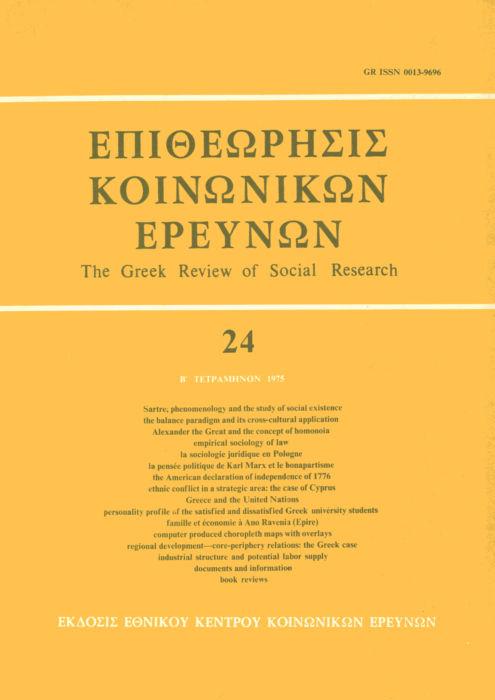Further research on the cross-cultural application of cognitive consistency theory
Abstract
An experiment was conducted to test the notion that cognitive
consistency is not a universal attribute, but is contingent upon
such variables as cultural group, age, sex of subject, and the issue
under consideration. In a 2 x 2 x 3 x 3 x 2 factorial design,
North American and Cypriot subjects were given questionnaires
which measured attitudes on three issues before and after the introduction
of a discrepant cognition. Subjects differed in evidencing
cognitive consistency, or discrepancy-induced attidude change,
with age and type of issue interacting with the cultural group. The
sex of subjects also mediated the consistency effect, but yielded no
significant interaction with the cultural group. The implications of
the results for cognitive consistency theory were discussed. Findings
replicate data presented in earlier studies with Greek and
American populations reported in The International Journal of
Psychology, The Greek Review of Social Research, and elsewhere
by the same authors.
Article Details
- How to Cite
-
Chrysostomos, A., & Khokhlov, N. E. (1981). Further research on the cross-cultural application of cognitive consistency theory. The Greek Review of Social Research, 41, 45–50. https://doi.org/10.12681/grsr.371
- Issue
- 1981: 41
- Section
- Articles

This work is licensed under a Creative Commons Attribution-NonCommercial 4.0 International License.
Authors who publish with this journal agree to the following terms:
- Authors retain copyright and grant the journal right of first publication with the work simultaneously licensed under a Creative Commons Attribution Non-Commercial License that allows others to share the work with an acknowledgement of the work's authorship and initial publication in this journal.
- Authors are able to enter into separate, additional contractual arrangements for the non-exclusive distribution of the journal's published version of the work (e.g. post it to an institutional repository or publish it in a book), with an acknowledgement of its initial publication in this journal.
- Authors are permitted and encouraged to post their work online (preferably in institutional repositories or on their website) prior to and during the submission process, as it can lead to productive exchanges, as well as earlier and greater citation of published work (See The Effect of Open Access).




